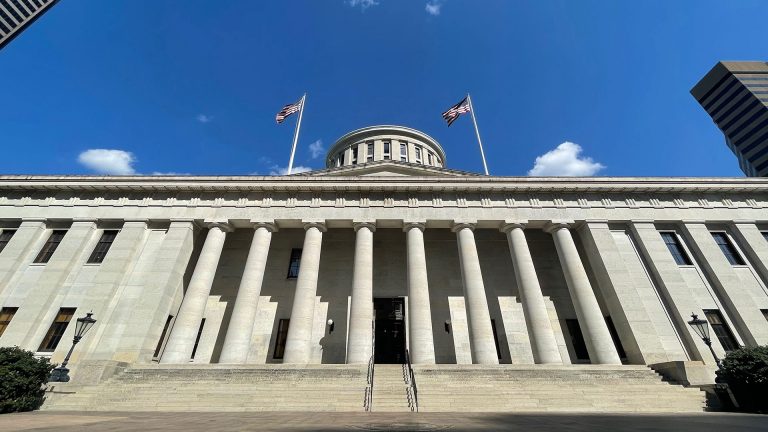Article by Tim Feran, originally posted on Columbus Underground
“It’s Sasquatch. It’s the Boogey Man.”
Those aren’t the stars of a new History Channel show. They are how one panelist at the Columbus Metropolitan Club’s June 21 forum characterized the arguments in favor of making it harder to amend the state’s constitution.
“The problem alleged… does not exist,” said panelist Mike Curtin, Associate Publisher Emeritus of The Columbus Dispatch and former Representative of the 17th District in the Ohio House of Representatives.
The forum — “The Future of Constitutional Amendments in Ohio” — also featured Rob McColley, State Senator in District 1, who spoke in favor of the proposal.
Rodney Dunigan, Assistant News Director at WSYX ABC 6 and WTTE Fox 28, moderated the discussion.
McColley argued that the current situation, which allows amendments to the state constitution to be made with the approval of a simple majority of voters — 50 percent plus one — is too exposed to the influence of special interests and must be changed to require 60 percent of voters to amend the constitution.
“There’s a lot more money going around those issues,” McColley said. He was particularly critical of the 2009 constitutional amendment authorizing casino gambling in the state.
“We put real estate parcel numbers on that (ballot language),” McColley said, which meant that the vote gave “sweetheart deals” to casino owners.
But Curtin noted that those who are working on behalf of raising the bar to 60 percent include a billionaire Republican megadonor from Illinois, Richard Uihlein, a Schlitz Brewing heir. Uihlein helped fund the rally that preceded the Jan. 6, 2021 riot at the U.S. Capitol, and he has spent millions bankrolling candidates who deny that Joe Biden won the 2020 presidential election.
“Special interests are all over this,” Curtin said. When reformers instituted the majority vote in 1911 it was “the crown jewel” in the effort to clean up the state, “because at the time Ohio was the most corrupt statehouse in the country… and it is again today.”
McColley said that currently Ohio voters are also able to directly vote on changing laws through statutory initiatives. That, he said, would be a much better way to bring about change than by altering the constitution. “Where in the constitution should anyone have the right to smoke marijuana?” he said.
But Curtin said there’s a good reason why the statutory initiative process is rarely used. “Ohioans almost never use the statutory initiative because there’s no protection in it,” he said. “Ohioans could vote to change the law one day and the Legislature the next day can overturn it.”
Dunigan said that many of his colleagues have been reporting that the reason for a special August election on the issue was to get ahead of — and possibly block — a November vote on abortion rights.
“For most of us, this isn’t just about abortion,” McColley said. He pointed to such backers of the amendment as the Ohio Chamber of Commerce, who “don’t have anything to say about abortion… it’s not their issue.”
Curtin replied that it’s been a longstanding tradition to have special elections when the maximum number of voters will be able to participate — “usually a November election,” he said.
The August vote is “cynical,” Curtin said. “It’s an historic display of bad faith. (Ohio Secretary of State) Frank LaRose said last year (in arguing against August votes) that, ‘This is not how democracy is supposed to work.’”

